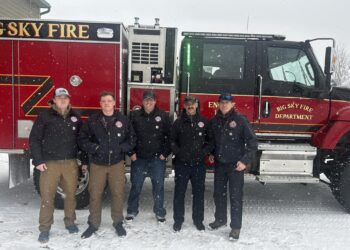
Bard of the proletariat
By Doug Hare EBS Staff
Ivan Doig is still gaining the recognition he deserves, including an upcoming symposium at Montana State University devoted entirely to the author. His depictions of hardscrabble lives in post-Depression, post World War II Montana resonate deeply with many who’ve picked up his books. If you read remembrances of the man, who passed in April 2015, you will find that many writers chose to uproot their lives and move to the Treasure State after reading one of his works. All of them thank Doig for prodding them in what turned out to be the right decision.
In my estimation, Doig ranks among the literary giants. His subtle ability to convey how landscapes shape our hearts and minds rivals Ivan Turgenev’s masterful depictions of the Russian countryside and the culture of its inhabitants. Doig’s unmatched poetic waxing about northern Montana’s mountains, rivers and prairies rightfully earned him the moniker “the dean of Western literature.” Who holds that position now is open to debate. Billy Kittredge? Tom McGuane? Rick Bass?
Alongside George Orwell and Charles Dickens, Doig not only understood the plight of the underprivileged and the “common man,” but like the two Englishmen, could articulate their mindsets and capture their voices while telling enthralling, rhapsodic stories. And like Thomas Wolfe, he was a maestro of locomotion. Train travel, bus rides and road trips all become vehicles to exploration of America and ourselves in his writing. Reading Doig, I am so often reminded of the rhythmic descriptions of traveling found in the books of one of my favorite writers.
One of the most underestimated American novelists, Wolfe wrote: “The great trains cleave through the gulch and gully, they rumble with spoked thunder…I will go out West where states are square; Oh, I will go to Boise, and Helena and Albuquerque. I will go to Montana and the two Dakotas.” And so many of Doig’s novels contain adventures spanning this country that give us a better understanding of our own geography, sense of “being home” and the thrill of encountering the unexplored and uncharted.
How does a poor boy who grew up in White Sulphur Springs become a great American novelist? I don’t know exactly. But I know it helps to have an inexhaustible imagination and an innate love of language; truth is, you just write better when you inherently want to find the right “turn of phrase.” Doig also held a Ph.D. in History and as an accomplished historian, he knew the place he grew up in better than most. Having a boundless curiosity doesn’t hurt a writer either.
I don’t know if storytellers are born or made, but Doig either came into this world as one, or slowly refined his craft. It’s easy to recommend works of his fiction—guy didn’t miss much. So many of his novels are littered with sparkling prose, but “Dancing at the Rascal Fair” (1987) “The Whistling Season” (2006) and “The Bartender’s Tale” (2012) are each great American novels
One of my earlier columns recommends his last work “Last Bus to Wisdom.” I’m baffled as to why Hollywood hasn’t made this into a movie yet. No-brainer. I’ll write the screenplay.
If you haven’t ever read anything by Doig, start with “This House of Sky: Landscapes of a Western Mind.” It’s a memoir of his life growing up in Montana. Just put it on your bookshelf. It belongs there.
Doug Hare is the Distribution Director for Outlaw Partners. He studied philosophy and American literature at Princeton and Harvard universities.










